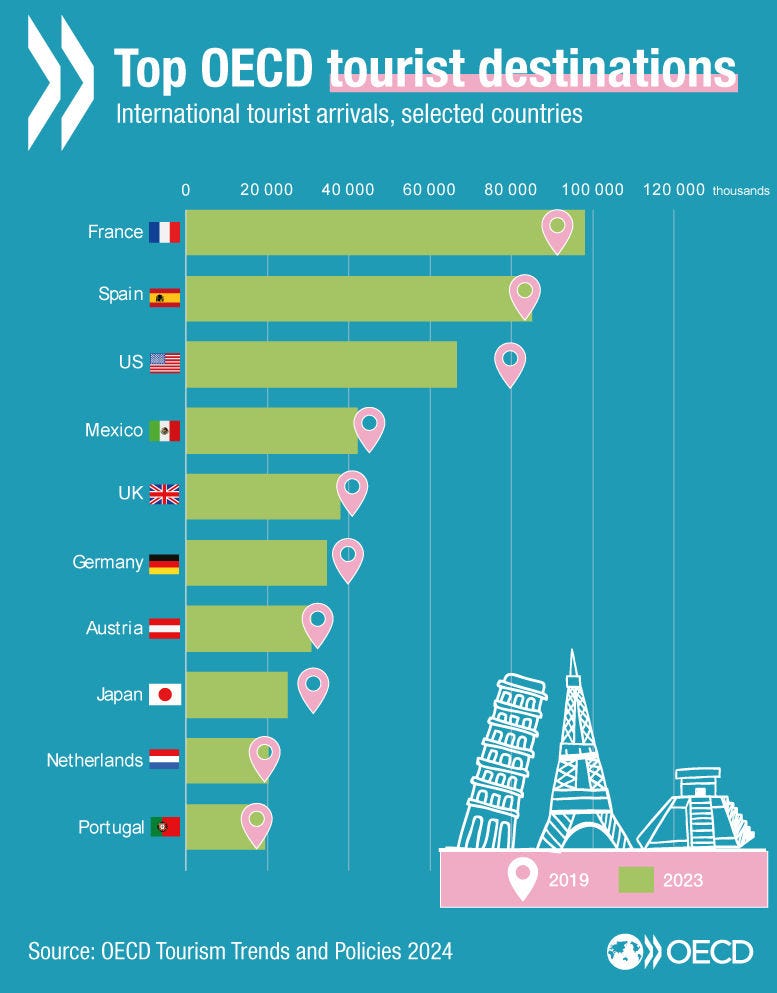OECD Tourism Trends and Policies 2024 highlights the sector’s continued recovery from the COVID-19 pandemic, with international tourist arrivals in 2023 exceeding pre-pandemic levels in many OECD countries. However, the pace of recovery has been uneven and the sector faces renewed challenges that may weigh down on growth.
The report underscores the sector's pivotal role in driving economic prosperity, jobs and well-being, with tourism´s direct contribution to Gross Domestic Product (GDP) bouncing back to 3.9% in 2022 in 20 OECD countries with available data, just half a percentage point down on 2019. Tourism also contributed 14.8% to service exports in 2022, still below pre-pandemic levels, but up from 9.7% in 2021. The evidence suggests that the recovery has continued since, spurred by the recovery in international arrivals and strong domestic performance.
In Colombia (up 34%) and Portugal (up 12%), international tourist arrivals reached new highs, exceeding pre-pandemic levels in 2023, but the recovery has been slower in countries like Australia, Finland, Japan and New Zealand.
The report recommends governments implement policies to:
- Empower destinations to diversify and better manage visitor flows, to deliver better outcomes for the environment and local communities.
- Integrate tourism workers' needs into broader development strategies, ensuring access to affordable housing and transportation in remote areas.
- Support tourism businesses to access financial aid and skills to adopt digital solutions, green business operations, and develop innovative work practices.


